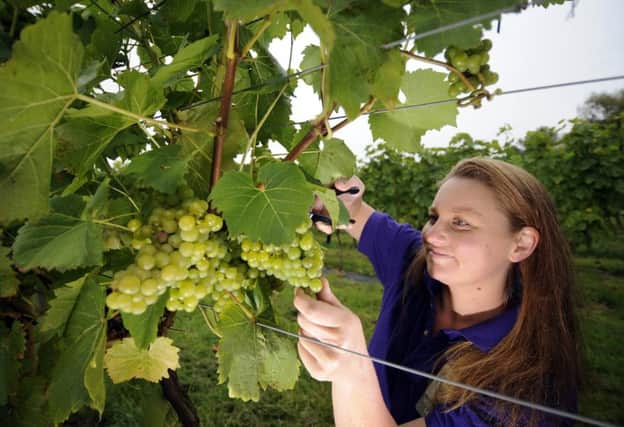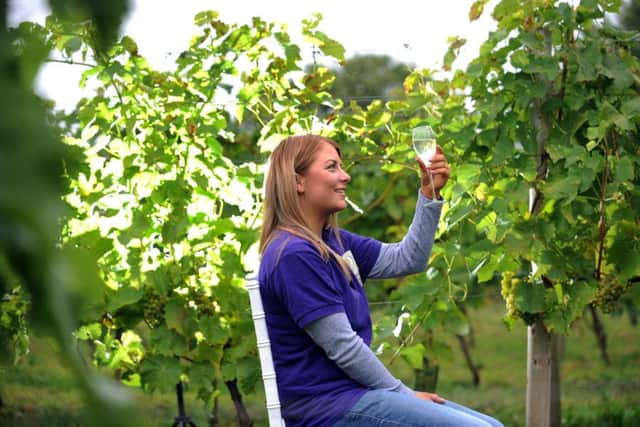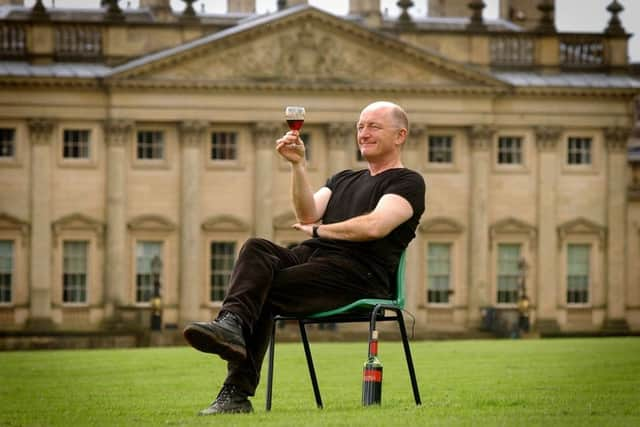Yorkshire at heart of England's wine boom '“ yet it all dates back to the Romans


The production of wine in a region better known for its beer has been one of the most surprising rural developments of recent years, and with the announcement today of a competition to uncork England’s best red, white and rosé, its bouquet was smelling fresher than ever.
A million vines are due to be planted in England and Wales this year and more than 5,000 acres are now under vine, with forecasts that the current annual output of five million bottles will double within five years.
Advertisement
Hide AdAdvertisement
Hide AdOnly a few of the nation’s 500 vineyards are in Yorkshire, but the effects of climate warming and hardier strains of vine have blown away the north-south divide that used to separate the hop from the grape.


John Fletcher, runs Ryedale Vineyards in Westow, near Malton, which bills itself as the most northerly commercial wine producer in Britain.
He said: “Until recently, there were very few vineyards north of Watford, but now you can find them as far up as Cumbria.”
Mr Fletcher said even the French had started to buy up wine growing territory in the UK, to oversee the production of the increasingly popular English Chardonnay fizz.
Advertisement
Hide AdAdvertisement
Hide AdThe broadcaster Oz Clarke, one of those behind the inaugural UK Wine Awards, agreed the stigma once attached to the domestic product appeared finally to have fermented into a grudging admiration.


He said: “The French finally admit they like our wines. New York decides that English bubbles are the next big cool wine ‘thing’, and we are planting a million new vines in our nation this year.”
The French investment has taken place so far in the milder south, although Mr Fletcher claimed that the Yorkshire climate was no longer a barrier to vine growing.
“One hazard is wet weather but as the climate improves, we can assume that we can grow wine again like we did in Roman times,” he said.
Advertisement
Hide AdAdvertisement
Hide AdThe Romans were fond of their plonk, but none of it was likely to have been of awards calibre.


“It wasn’t good wine but it did have alcohol in it and it was preferable to drinking dirty water,” Mr Fletcher said.
“At least it had fermented so it was sterilised.”
The reputation established by the Romans persisted until the 20th century revival – and even now, the country’s producers are concerned that quaffers do not know the difference between English and “British” wine – the latter being produced here from cheap, imported grape juice.
“No other country in the world would allow English and British to be confused,” said Chris Spakouskas, whose Yorkshire Heart wine is mis en bouteille at Nun Monkton, near York.


Advertisement
Hide AdAdvertisement
Hide Ad“The big difference is the price. British wine is always cheap, and we do suffer from it. People are always telling me they can buy Country Manor for three quid and asking why we’re charging £10.”
He is planting 4,000 vines in North Yorkshire this year, which will take three to four years to bear fruit.
He said: “The nearest vineyard to us is 30 miles away, and there is nothing similar in our growing conditions, our soil, our microclimate.”
Rapid growth of vineyards
Britain’s wine industry has seen a rapid growth in recent years that has dispelled myths that the nation’s vineyards could not compete with their rivals around the world.
Advertisement
Hide AdAdvertisement
Hide AdThe acreage planted with grape vines has grown by 135 per cent, and since 2000 acreage has nearly tripled – making wine production one of the fastest growing agricultural sectors in the UK.
This year’s vine planting will yield another two million bottles of mainly sparkling wine, adding an estimated £50m to the industry
The new vines will fill an estimated 625 acres – the equivalent of planting up the whole of London’s Hyde Park and Kensington Gardens combined.